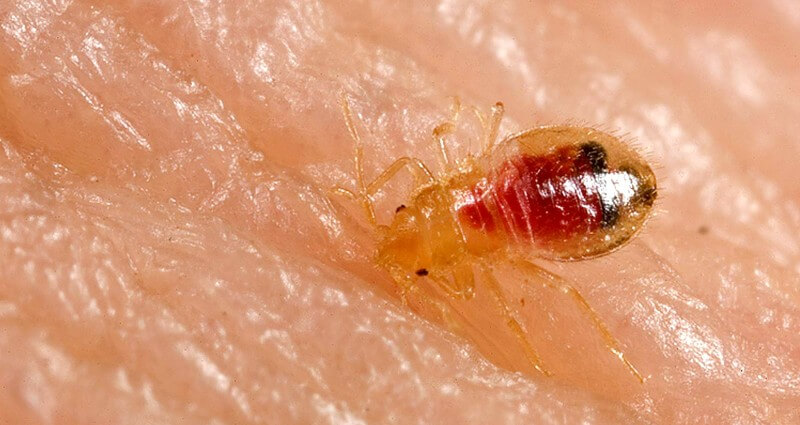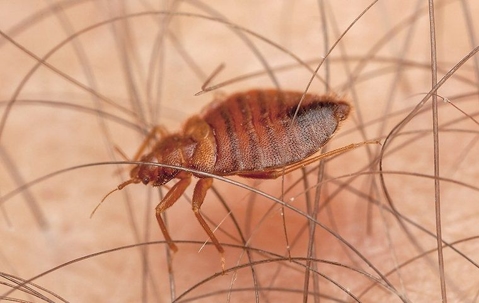Kings Cincinnati Pest Control Companies: Reliable Services
Kings Cincinnati Pest Control Companies: Reliable Services
Blog Article
A Malfunction of the Numerous Kinds Of Pest Control Solutions
In the realm of pest control, a multitude of methods exist to address and deal with the visibility of unwanted creatures. As we navigate via the diverse landscape of insect control options, recognizing the details of each technique becomes extremely important in figuring out the most reliable training course of activity.
Chemical Pesticides
Chemical pesticides are frequently made use of in pest control to effectively remove a large variety of pests and various other parasites. These pesticides function by targeting the nerve system of the parasites, disrupting their normal features, and ultimately leading to their demise. Making use of chemical pesticides has been a staple in the pest control sector for years as a result of their efficiency and quick outcomes.

Nevertheless, it is vital to make use of chemical pesticides with care due to their possible hazardous impacts on the setting and non-target types. Inappropriate application or overuse of these chemicals can lead to contamination, harm to useful insects, and resistance growth in bug populations. It is crucial to comply with security guidelines and laws when using chemical pesticides for pest control.
Biological Control Techniques
Taking into consideration the potential ecological influences and dangers connected with chemical pesticides, organic control methods use an even more sustainable method to managing parasite populations. Biological control entails making use of natural enemies, such as predators, microorganisms, and parasites, to reduce insect populaces. This technique is often more targeted, impacting only the details parasite varieties while reducing harm to advantageous insects, human beings, and the setting.

As soon as established, all-natural adversaries can assist manage pest populaces constantly without the demand for duplicated applications of chemicals. Additionally, biological control is usually a lot more affordable and can aid reduce pesticide resistance in bug populaces over time.

Mechanical Pest Control
Mechanical parasite control includes the physical adjustment or elimination of insects to manage their populaces properly. One usual example of mechanical pest control is utilizing traps to catch rodents or bugs.
One more mechanical method is making use of obstacles such as nets, fencings, or screens to obstruct bugs from going into particular locations. By physically protecting against bugs from accessing a location, the likelihood of invasions or damages can be substantially reduced. Furthermore, hand-operated methods like handpicking insects off plants or frameworks can be effective for smaller-scale invasions.
While mechanical bug control techniques can be labor-intensive, they use a non-chemical option that can be sustainable and environmentally pleasant. By targeting bugs directly, mechanical control methods can aid keep click to find out more parasite populations in check without counting on pesticides.
Natural Remedies
Utilizing all-natural solutions for parasite control provides a sustainable and green approach to taking care of bug populations without resorting to chemical treatments. Natural solutions include utilizing substances derived from plants, minerals, or other normally happening resources to discourage or remove parasites.
Furthermore, important oils such as tea tree oil or neem oil have insecticidal buildings that can properly spider control manage insects while being risk-free for the environment. One more all-natural treatment is introducing valuable insects like ladybugs or hoping mantises to your garden to exploit dangerous insects. By integrating these all-natural options into parasite monitoring methods, people can decrease their dependence on synthetic chemicals and advertise a healthier, more well balanced environment.
Integrated Parasite Management
Integrated Insect Administration (IPM) is a detailed approach that combines different strategies to properly control pest populations while reducing dangers to human health and wellness and the atmosphere. IPM includes the combination of several insect control methods such as organic control, environment adjustment, adjustment of social practices, and the use of immune plant varieties. By utilizing a combination of these strategies, IPM aims to reduce dependence on chemical pesticides, which can have unfavorable influence on environments and human health.
One key facet of IPM is the emphasis on prevention. By applying steps to stop insect problems before they happen, such as keeping appropriate sanitation and sealing access factors, the need for responsive insect control measures is reduced. Surveillance and regular inspections play an important role in IPM, permitting early detection of parasite issues and timely treatment.
Final Thought
In final thought, the different types of pest control options use an array of alternatives for effectively managing pest problems. Organic control methods utilize natural killers to regulate insects. Integrated Insect Management integrates multiple strategies for an all natural method to pop over here pest control.
Chemical pesticides are frequently made use of in bug control to effectively remove a large array of bugs and other parasites.Mechanical parasite control includes the physical control or removal of bugs to manage their populaces efficiently (Kings pest control cincinnati oh).Using all-natural treatments for pest control supplies a sustainable and environmentally friendly approach to taking care of parasite populations without resorting to chemical interventions.Integrated Bug Monitoring (IPM) is a comprehensive strategy that incorporates various approaches to effectively manage pest populaces while reducing threats to human health and wellness and the environment.In verdict, the various kinds of parasite control solutions provide a range of options for successfully managing pest problems
Report this page